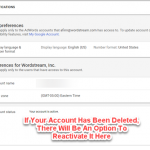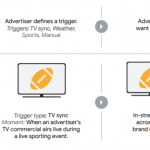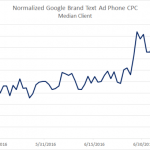Google Advances In Near-Me Searches Prove Most Influential
Google Advances In Near-Me Searches Prove Most Influential
by Laurie Sullivan, Staff Writer @lauriesullivan, April 12, 2017

Mobile has become more than a device. The data collected from technology supports media insights into organic and paid ranking factors crucial to marketers.
Desktop technology provides similar information, but mobile travels with the consumer, which gives marketers more information on behavior.
This week, Darren Shaw, founder of the search agency Whitespark, released the 2017 local Search Ranking Factors Survey Results on the Moz Web site, which sheds light into the factors that influence ranking in organic search on Google.
This year, there are five sections to the 2017 survey: Thematic Ranking Signals, Specific Ranking Factors in Local Pack/Finder and Local Organic Results, Foundational vs. Competitive Ranking Factors, Impact of the Possum Update and Negative Ranking Factors.
In the first section, participants are asked to rate as a percentage of influence up to eight factors that contribute to rankings across Google for their Web site and content. The areas range from business signals like proximity, category and keywords in business titles, to behavioral and mobile signals like click-through rates and mobile click-to-calls or check-ins.
The proximity of the searcher to the physical address is the biggest factor, with 492 total points, giving more credence to the advancements Google has made with near-me searches. The findings from this study shows that proximity of address to the point of search climbed No. 8 in 2014, to No. 4 in 2015, to No. 1 in 2017.
The physical address in city of search came in at No. 2 with 402 points, and rounding out No. 3 was properly constructed associations with the Google My Business (GMB) category.
The survey also asked experts to rank 34 negative factors in order of the most damaging to the most benign. Survey participates noted the most critical as Listing Detected at False Business Address; Incorrect Business Category ranked at No. 2; and No. 3, reports of violations on Your GMB listing.
Overall, the study shows experts have shifted priorities since 2015, which is the last time the study was done. For example, the focus on Google My Business signals fell from 21.63% in 2015 to 19.01% in 2017. Perhaps because Google automates location signals in the search.
Link signals rose from 14.83% in 2015 to 17.31% in 2017, and on-page signals fell from 14.23% to 13.81%. Review signal and behavioral signals made the highest jumps from 10.80% to 13.13%, and 8.60% to 10.17%, respectively. (The compete findings are here.)
MediaPost.com: Search Marketing Daily
(30)













